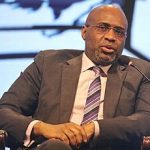
The National Bureau of Statistics (NBS) has officially released Nigeria’s rebased Gross Domestic Product (GDP) figures, updating the country’s economic metrics to reflect a 2019 base year. While the revised data offers a more comprehensive and modern view of the economy, it also exposes a fundamental truth:
President Bola Tinubu’s administration has failed to convert technical adjustments into tangible economic progress.
What the New Data Shows
The rebased figures mark the first significant update since Nigeria last recalibrated its GDP in 2014. The new base year of 2019 replaces the outdated 2010 benchmark, incorporating emerging industries such as digital finance, tech, and the creative economy.
According to the new data:
Year Nominal GDP (₦ Trillion) Real GDP Growth (%)
| Year | Nominal GDP (₦ Trillion) | Real GDP Growth (%) |
|---|---|---|
| 2019 | 205.09 | — |
| 2020 | 213.63 | -6.96% |
| 2021 | 243.30 | 0.95% |
| 2022 | 274.23 | 4.32% |
| 2023 | 314.02 | 3.04% |
| 2024 | 372.82 | 3.38% |
The upward revision reflects a 41.7 per cent increase in nominal terms, driven mainly by changes in methodology and sectoral inclusion.
However, despite the statistical improvements, real GDP growth remains modest, struggling to outpace inflation and population growth.
A Disconnect Between Data and Daily Reality
While the rebasing enhances the quality of national accounts, it also spotlights the Tinubu administration’s lack of substantive economic delivery.
The NBS has updated the data; now it’s up to the government to update its policies. GDP rebasing doesn’t build roads, reduce inflation, or create jobs.
Under the Tinubu regime, Nigeria has implemented several headline reforms, including the removal of fuel subsidies and currency liberalisation. Still, these have mostly translated into higher prices, volatile markets, and public frustration, rather than productivity gains.
Sectoral Insights, Stagnant Outcomes
The rebased data gives more weight to the services sector, especially financial services, telecoms, and ICT. Meanwhile, the real economy, agriculture, manufacturing, mining, and construction, remains underperforming and underdeveloped.
- Agriculture is still vulnerable to insecurity and underinvestment
- Manufacturing faces power shortages and FX scarcity
- Youth unemployment remains high
- Inflation has reduced purchasing power across all classes
What the numbers don’t show is the suffering. People can’t eat spreadsheets. The economy isn’t working for the average Nigerian.
Reform Without Strategy
While the Tinubu administration often touts its willingness to take “tough decisions,” it has failed to follow through with clear direction or support systems.
- No comprehensive industrial policy has been released
- Social protection systems remain thin, even as living costs spike
- Capital flight continues, and investor confidence remains fragile
You cannot reform your way into austerity and expect growth to follow. Without a bold productivity agenda, these reforms are just hardship dressed up as discipline.
The NBS rebasing is a necessary and commendable exercise, modernising Nigeria’s economic data infrastructure. But data is only as valuable as the leadership that acts on it.
As it stands, the updated GDP figures serve more as a mirror than a milestone, reflecting what Nigeria could be, not what it currently is. And until the Tinubu regime delivers real, measurable improvements in productivity, infrastructure, and human capital, growth will remain statistical rather than structural. You can’t rebase the economy into progress. You have to build it.
Read More:
- Malian Authorities Prevent Ex-PM Moussa Mara from Travelling Out of the Country
- Tinubu Is Fanning Flames of Tribalism—At Home and Across Borders
About The Author
Related Articles
Asake Sets New Billboard Afrobeats Record as Chart Presence Grows
Asake has further cemented his place as one of Afrobeats’ most dominant...
ByWest Africa WeeklyJanuary 29, 2026Nigerians Lament PayPal’s Return as Old Wounds Resurface
PayPal’s reentry into Nigeria through a partnership with local fintech company Paga...
ByWest Africa WeeklyJanuary 29, 2026Tanzania Eyes Gold Sales as Aid Declines and Infrastructure Needs Grow
Tanzania is weighing plans to sell part of its gold reserves to...
ByWest Africa WeeklyJanuary 29, 2026Mali Tightens Grip on Explosives Supply With New Majority Stake
The Malian government has taken majority ownership of a civil explosives manufacturing...
ByWest Africa WeeklyJanuary 29, 2026













Leave a comment